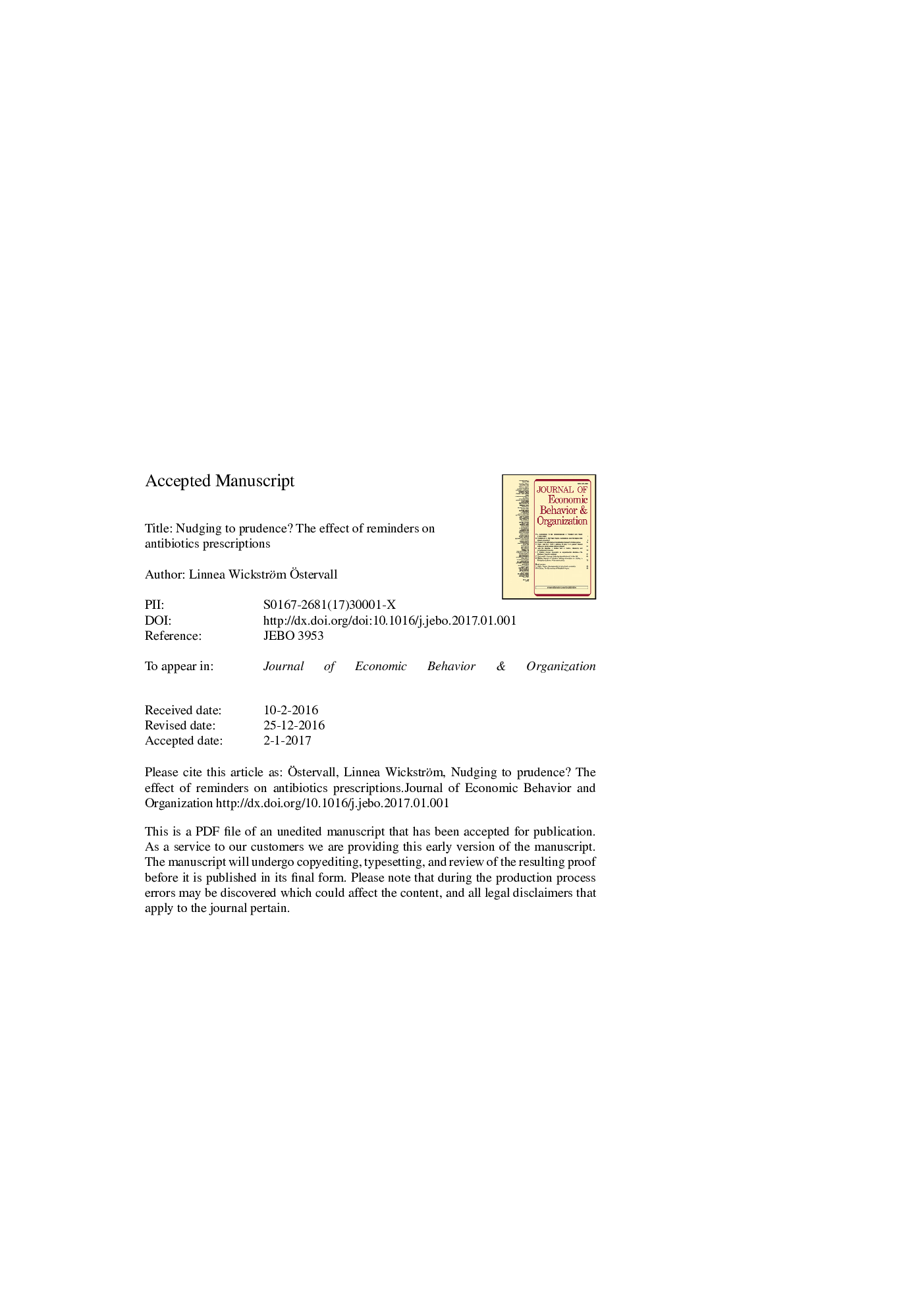| Article ID | Journal | Published Year | Pages | File Type |
|---|---|---|---|---|
| 5034582 | Journal of Economic Behavior & Organization | 2017 | 36 Pages |
Abstract
Antibiotic resistance is a large and growing global health threat with important consequences. Prudent use of antibiotics is vital to delay the spread of resistance. In this study I use a randomized controlled trial to test the effect on antibiotics use of reminders to primary care patients. The intervention was implemented across 31 clinics during the flu season in Stockholm. A two-level randomization was used, with randomization at clinic level as well as at individual patient level. With reminders antibiotics use fell by 12.6 per cent relative to the control clinics. The effect is at clinic level, suggesting that doctors or doctor - patient interactions, not individual patients, are affected. Results from a follow-up experiment further suggest that an effect on the interactions between doctor and patient is the primary driver of the main results. Behavioural interventions targeting these interactions have the potential to reduce antibiotics use. More research is needed, though, as monitoring and adherence may also play a role.
Related Topics
Social Sciences and Humanities
Economics, Econometrics and Finance
Economics and Econometrics
Authors
Linnea Wickström Ãstervall,
